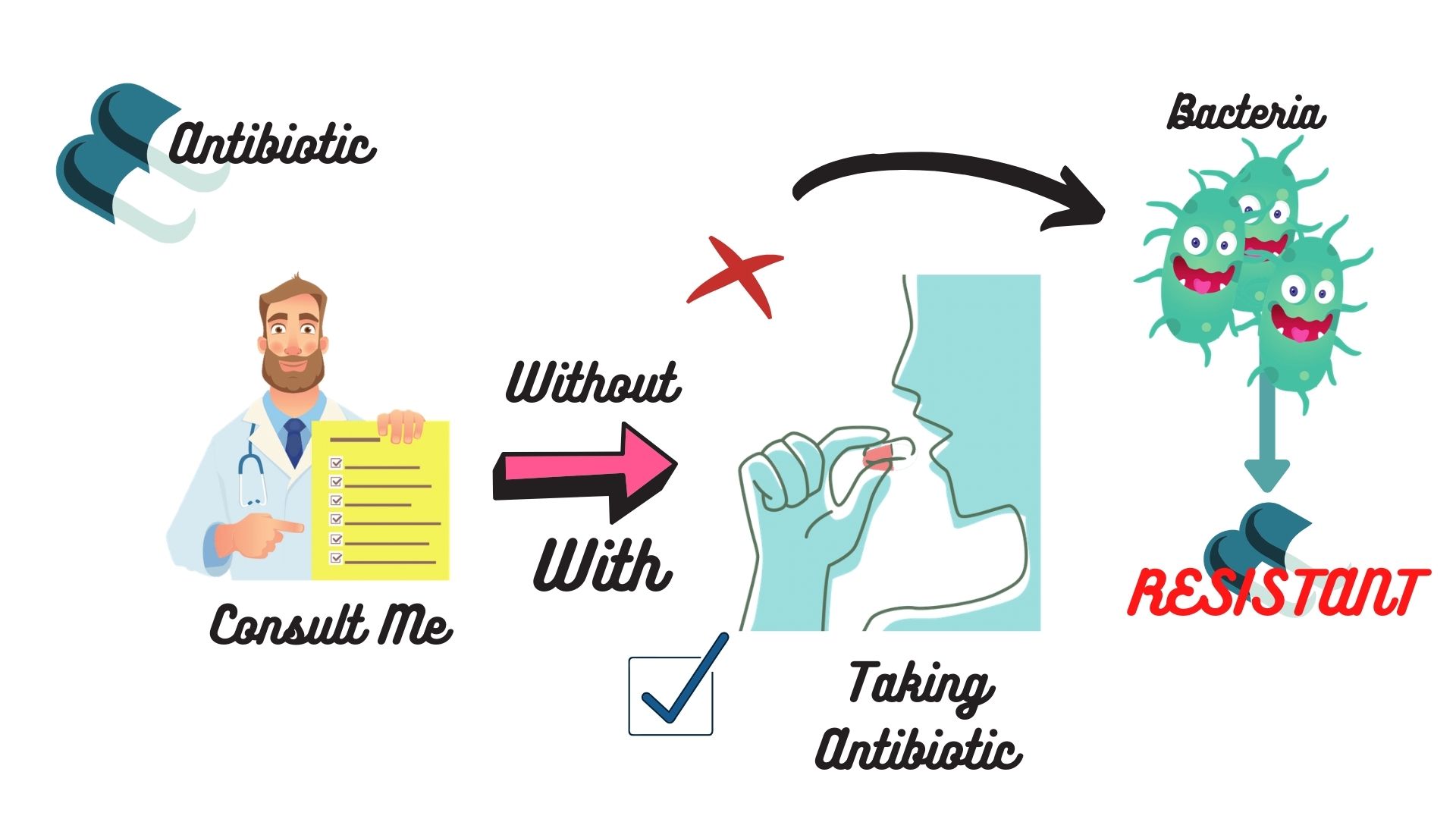Antibiotics work effectively in most people but not for all. The same antibiotic does not work for all individuals. One may ponder about the differences in antibiotic sensitivity among various individuals? Could genetic variations lead to variations in antibiotic sensitivity? Not genetics rather, overexposure to antibiotics make bacteria increases the probability of bacteria to become resistant to it. According to reports, India tops the list of countries with the highest incidence of antibiotic resistance. Awareness in this aspect is essential to avoid hassles in treatment strategies. It is the responsibility of every country, to enlighten citizens about the serious impact of antibiotic resistance and to educate the population regarding the proper use of antibiotics.
How does antibiotic resistance occur?
Well, there are many possible reasons for it.
Taking antibiotics without prescription from professional expert. This constitutes as one of the main reasons for development of antibiotic resistance. Considering anexample, the causative organism for common cold are viruses. Consuming antibiotics to treat common cold makes no or little difference to the affected individual but rather it may prompt the bacterial population to become resistant to a particular antibiotic. So remember, take only prescribed course of drugs else it may give way to antibiotic resistance. Avoid buying or selling antibiotics over the counter without proper prescription. Additionally, sometimes antibiotics are prescribed due to wrong diagnosis. This clinical misdiagnosis leads to unnecessary consumption of antibiotics often leading to development of antibiotic resistance.
Low grade of antibiotics. In several developing nations, antibiotics are of substandard quality, may not be stored properly and some are consumed even after the actual expiration dates. Continuous intake of such antibiotics in doses lower than what is recommended to treat the disease also leads to development of antibiotic resistance.
Antibiotics used as prophylactics. In several developed countries antibiotics are given to individuals with low immune conditions such as those who have recently undergone operation or those undergoing chemotherapy. These factors may also contribute to resistance and ease of international travel facilitates the transfer of antibiotic resistant bacteria to several places in a short span of time.
Nosocomial infections. Hospital-acquired antibiotic resistance contributes largely to the number of antibiotic resistant infections. The excessive use of antibiotic for multiple purposes often leads to development of resistant bacteria. The resistant bacteria quickly cross-contaminate patients thereby increasing their numbers. Use of antibiotics based on rotations may reduce the development of such resistant bacteria.
Antibiotic resistance is through poultry or animal husbandry. Here, in addition to use of antibiotics to treat disease conditions, they are also used to avoid the spread of diseases. In some cases, antibiotics are also used as growth stimulators in animals. The resistant bacteria can be introduced into the human body through consumption of food derived from animals infected with the resistant bacteria. The later impact of it is the failure of an individual to fight against bacterial diseases.
Stance of World Health Organization (WHO) on antibiotic resistance
Considering the importance of antibiotics WHO has
Written by: Apoorva H. N., DST-JRF, Yenepoya Research Centre, Yenepoya (Deemed to be University), Mangalore-575018, Karnataka, India.

Artwork: Apoorva H. N
Edited by: Saketh Kapoor

